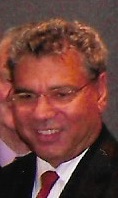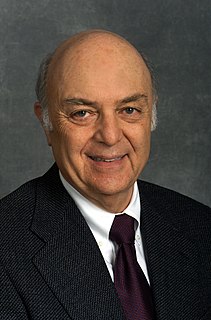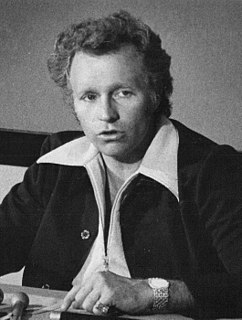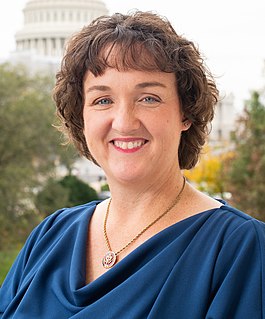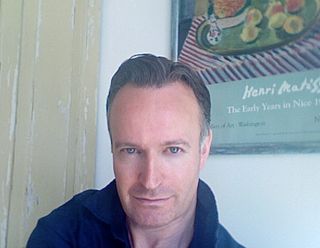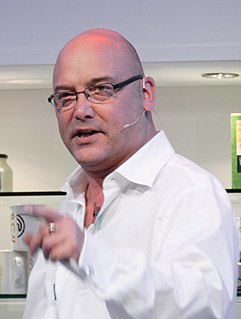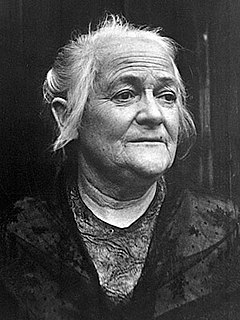Top 1200 Working-Class Quotes & Sayings - Page 20
Explore popular Working-Class quotes.
Last updated on December 23, 2024.
We were very - we were a working family, and my father had this very simple philosophy, simple working class approach. If you spoke to my father and said, "Mr Smith across the road, what do you think of Mr Smith?", he'd only - he'd only say a couple of words. He'd say, "He's a worker", and that meant this bloke got up in the morning, went out, worked, brought his money home, fed his wife and kids, housed them, got them to school, educated them, made sure they were safe and all that. It had so much connotations to it.
You have different levels of players. There's are Premier League, international and world-class levels. The world-class level is players at the peak of their career and there's only maybe 50 maximum in the whole world. Stevie moved from a Premier League player to an international player and then world class.
Before I knew that I was Jewish or a girl I knew that I was a member of the working class. At a time when I had not yet grasped the significance of the fact that in my house English was a second language, or that I wore dresses while my brother wore pants, I knew--and I knew it was important to know--that Papa worked hard all day long.
If white people on a larger scale really de-emphasized their whiteness, I think that would have to transform the Republican party into a more responsible party that couldn't get by on just playing into white resentment, especially white middle and working class resentment while taking care of the interests of plutocrats.
The working class of England take their deracination completely for granted. Disenchantment is the happy code that informs every byway of the underclass: service jobs, celebrity dreams, Lotto wins, leisured poverty on pre-crunch credit cards, it's all there, part of the story of an English people whose grandparents never had it so good.
The experiments made on the mutual electrical relations of bodies have taught us that they can be divided into two classes: electropositive and electronegative. The simple bodies which belong to the first class, as well as their oxides, always take up positive electricity when they meet simple bodies or oxides belonging to the second class; and the oxides of the first class always behave with the oxides of the other like salifiable bases with acids.
The totalitarian states can do great things, but there is one thing they cannot do: they cannot give the factory-worker a rifle and tell him to take it home and keep it in his bedroom. That rifle, hanging on the wall of the working-class flat or laborer's cottage, is the symbol of democracy. It is our job to see that it stays there.
We must not depict socialism as if socialists will bring it to us on a plate all nicely dressed. That will never happen. Not a single problem of the class struggle has ever been solved in history except by violence. When violence is exercised by the working people, by the mass of exploited against the exploiters -- then we are for it!
At first I wanted to go to university, but I really didn't dare to. I was too self-conscious, being a working-class kid. It was really difficult. I was going to study history, but the professor asked me some questions I didn't understand, and I didn't dare to ask what they meant. I left university and went to work in the Post.
I naively chose a college that was almost as expensive as Stanford, and all of my working-class parents savings were being spent on my college tuition. After six months I couldn't see the value in it. I had no idea what I wanted to do with my life and no idea how college was going to help me figure it out.
Essentially what my campaign is about, it`s about anything, this is saying we`ve got bring that money back into the middle class and working families. We have to create jobs, we have to raise, we have to make public colleges and universities tuition free so kids in that community who are studying hard understand that some day they will be able to go to college.
Conservative Party membership has almost halved since David Cameron become leader. The truth is the Tories are financially reliant on, and as a result are governing on behalf of, an ever-shrinking class of people. The more they attack working peoples’ attempts to have some influence on the political landscape, the more they reveal that they govern for the millionaires, not the millions.
Sometimes, I had very little - if any - idea for whom I was really working: at the end of the day, who reaped the profits? Was it a privately controlled German foundation or a global array of stockholders? A middle-class guy on the Upper West Side or Rupert Murdoch? Were we pursuing mere profit, or self-perpetuation, or something bigger?
In order to arouse sympathy, the aristocracy was obliged to lose sight, apparently, of its own interests, and to formulate its indictment against the bourgeoisie in the interest of the exploited working class alone. Thus, the aristocracy took their revenge by singing lampoons on their new masters and whispering in his ears sinister prophesies of coming catastrophe.
The piano has disappeared from working-class family life, which is a shame. It's associated with the middle classes now. Everyone in my family sang and played piano, but my parents were delighted and amazed when I became the first professional performer in the family - apart from a clog-dancer way back.
I find myself feeling like Oscar in 'Sweat' just by virtue of cleaning the tables, wiping the bar down and picking up everybody's glasses - and not making eye contact, because that's the character. These are working-class, blue-collar people. These are the people I grew up with. It gets under your skin.
By default, we have created a "system" of nursing-home care for the aged in which middle-class people pay exorbitant rates to for-profit nursing-home entrepreneurs - and then when private resources are consumed and the patient qualifies as a pauper, the nursing home begins billing Medicaid. This is precisely the antithesis of social citizenship; instead of the poor being accorded the dignity associated with the middle class, equality of treatment is achieved by making the middle class undergo pauperization.
